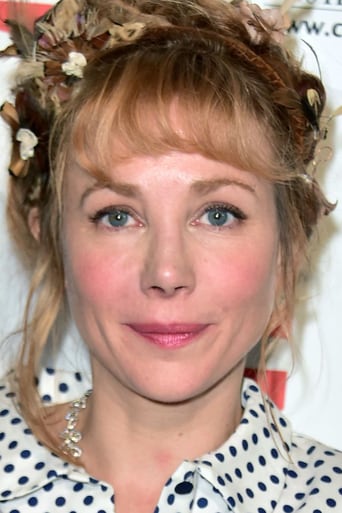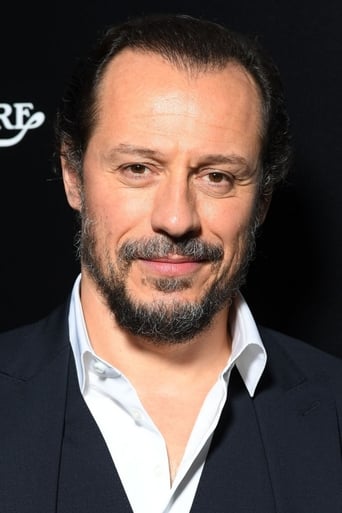Linbeymusol
Wonderful character development!
Sameer Callahan
It really made me laugh, but for some moments I was tearing up because I could relate so much.
Kamila Bell
This is a coming of age storyline that you've seen in one form or another for decades. It takes a truly unique voice to make yet another one worth watching.
Billy Ollie
Through painfully honest and emotional moments, the movie becomes irresistibly relatable
JoshuaDysart
As Anna goes, so goes France! Or something...A nine year old girl weathers her affluent family's shift toward leftest politics along with the rest of 1970's French youth culture. Little Anna's fear of change manifests in her traditional attitudes towards religion and social class.Costa Gavras' daughter makes her directorial feature film debut. It's a nice flick. Sometimes honest, sometimes hokey and obvious. It does come dangerously close to equating conservatism with childishness and liberalism with emotional maturity, which even for a leftest like me comes off a little trite. But through it all Nina Kervel-Bey, who plays Anna, is amazing as the (mostly) conservative child in a Allende supporting anti-Franco family. As a scowling little brat, she's aces, but she has real range too.And her little brother has to be one of the most entertaining young kids I've seen put on film in a while. Worth watching.
Charles Herold (cherold)
What impressed me most about this film was how you always know what Anna is feeling. This is partly because of the wonderfully expressive actress playing the part, and partly because it is easy to recall how we felt about things as children and recognize how we would react to the clearly drawn situations of the film. It is also remarkable because while most French movies let you know what characters think simply by having them talk endlessly, Anna keeps her words short and to the point and the adults around her never seem to explain things as much as they ought to.It is interesting to see how people here respond to the film. One review described it as a movie about adults balancing child raising with world saving, which is certainly a part of the film but to me wouldn't seem to be the focus. Someone else saw the film as an example of how activists can be bad parents.But really, this film is so focused on Anna that I tended to feel whatever she was feeling, and as her feelings and understand evolved during the film, mind did as well. The movie feels very balanced, showing everyone's strengths and weaknesses, kindnesses and cruelties, honor and stupidity, and it feels very authentic; I don't know if this is fiction, a memoir or somewhere in between, but it feels very realistic and believable.This is a quiet, thoughtful movie and it took me a while to get into it, perhaps simply because I approach French movies with a certain amount of suspicion, which is why I gave it a 7 instead of an 8. I became more and more drawn in as I watched, and found the final scenes especially touching. It's a lovely little film.
lastliberal
This is an exciting film from Julie Gavras, the daughter of Oscar winning writer/director Costa-Gavras (Missing, Z). The effect of a rise in consciousness on the part of Anna's (Nina Kervel-Bey) parents, played by Julie Depardieu and Stefano Accorsi on the family is examined with humor.Giving up her comfortable bourgeois life so her parents could fight for social justice against fascists like Franco was a real adjustment for Anna. It didn't help that her nanny filled her head with nonsense, but her sacking solved that problem.It was a beautiful tale of a girl growing up to think, and to think about someone other than herself. She learned about solidarity and freedom and the pain of escaping one's past.This little girl has a real future in film.
Dennis Littrell
This debut film by Julie Gavras, daughter of famed Greek-born director Costa-Gavras (e.g., Z, 1969), was nominated for the Grand Jury Award at the Sundance Film Festival in 2007. In addition to directing, Julie Gavras also collaborated with Arnaud Cathrine on the script which they adapted from a novel by Italian novelist Domitilla Calamai. What is striking about the story is the way it reconstructs how girls become social, how they learn about their world, how they question it, and how they reconcile the contradictions, and how they grow up.Doing the growing up is nine-year-old Anna de la Mesa, played with fidelity, wit, and skill beyond her years by Nina Kervel-Bey. She is bourgeois to the core, following the lead of her maternal grandparents, who own a vineyard in Bordeaux, and her favorite nanny and housekeeper who lost everything to the Communists when Fidel Castro came to power in Cuba. Her parents, however, are infatuated with the Left, especially with the rise of Allende to power in Chile. The year is 1970-71.Anna loves their house and garden and going to Catholic school. She is proper and sensible. When they lose their house, and have to let the nanny go, and end up renting an apartment in Paris, Anna is upset and demands to know why things have changed. When it appears that they don't have as much money, Anna begins turning off the lights and turning down the heat to save money. When they want her to transfer to the public school, she demurs and a compromise is made: she can continue to go to Catholic school but she is not allowed to take Bible studies. So when that time of the day comes, she has to stand up and go outside the classroom door and wait.But Anna is strong emotionally and intellectually. She questions everything and is not self-conscious about being singled out. The other girls may laugh, but when she gets into a fight with one of them, she manages to win her over afterwards so that they are friends, even though their parents are not.There is in the background the political disputes between the Right and the Left, between parents who change the subject when the question how babies are made is brought up, and those who tell the truth, in short between the bourgeois and the bohemian. One gets the sense that Gavras and Anna are wiser than the disputants, and that there is something to appreciate in both ways of life.It is impossible not to identify with little Anna, partially because she herself is so fair, and partially because it is such a thrill to see the psychology of the socialization process displayed so well and true in a movie, but also because Nina Kervel-Bey is such a powerful little actress who was so wondrously directed by Julie Gavras. This is one of the best performances by a preteen actor that I have ever seen. Kervel-Bey simply dominates the film and commands the screen.Will Anna shed her petite bourgeois ways and embrace the politics of her parents? I highly recommend that you see this film and find out.(Note: Over 500 of my movie reviews are now available in my book "Cut to the Chaise Lounge or I Can't Believe I Swallowed the Remote!" Get it at Amazon!)


